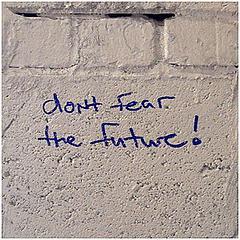Posted by Irresponsibility

Sixteenth century essayist Michel de Montaigne observed that: “Fear, desire, and hope impel us into the future and rob us of the sense and consideration of that which is, in order to keep us musing over that which will be”. These days, fear, desire, and hope get a helping hand from media, which seems determined to construct for us neuroses out of thin air.
Take Tuesday, 8 February’s Guardian G2 cover story: The Breast Cancer Explosion: Sarah Boseley on what can be done to reduce the risks. The website version is retitled ‘The Truth About Breast Cancer’ but neither headline is accurate, nor reflective of the content of the article.
The feature highlights a “new” statistic that women have a one-in-eight “lifetime risk” of getting breast cancer. That scary big number only applies to women over 70, however, and it is based on an unpublished paper reporting statistics based on “new methodology”. So maybe the “cancer explosion” is just a statistical blip. Still, it can’t hurt to read on and find out “what can be done to reduce the risks”. Except that experts say the main risk factors “have nothing to do with lifestyle. They are age, being female and having a significant family history”. In other words, three things over which you have absolutely no control. Even these risk factors are poorly understood, forcing journalist Boseley to conclude with an embarrassingly mealy-mouthed bulletin from the department of the obvious:
Each one of us has an individual risk, but we are unlikely to be able to find out what it is any time soon… What probably matters most is our general state of health. People who drink too much and eat too much and never so much as run for a bus risk not only breast cancer but a whole load of other diseases too.
The entirely pedestrian “truth about breast cancer” is that no one really knows much about who gets it or why, much less how to avoid it. So-called experts don’t really know much more than anyone else; and what little they do know is likely to be muddled, contradictory, and inapplicable to daily life. Nevertheless, the media scaremongers like mad (I’m only picking on the Guardian because I read it over breakfast. Every newspaper, magazine and telly channel is equally culpable) — pumping up the collective stress levels with doomsday scenarios involving everything from poor dental hygiene to cancer.
Alarmist reportage purports to empower people with information, however there is nothing in these stories designed to enhance people’s health, wellbeing or sense of agency. Au contraire. It isn’t even information; it’s informed speculation. Otherwise known as educated guesses. These stories use the bogey of insoluble problems to paralyse people into a state of abstract anxiety that prevents them from recognising and addressing more tangible, urgent issues. It is stupid to worry about whether you might get cancer in 20 years when your gas is due to be cut off tomorrow, and it is precisely the tension between these two levels of worry that turns people into rabbits in the headlights. Most individuals have little control over their lives, and that’s exactly how the corporate-governmental oligarchy likes it.
You can’t avoid cancer but you can avoid wasting your precious time fretting about something that might not happen. So next time a scare-headline appears remember: fear of the future only robs you of the precious present.
